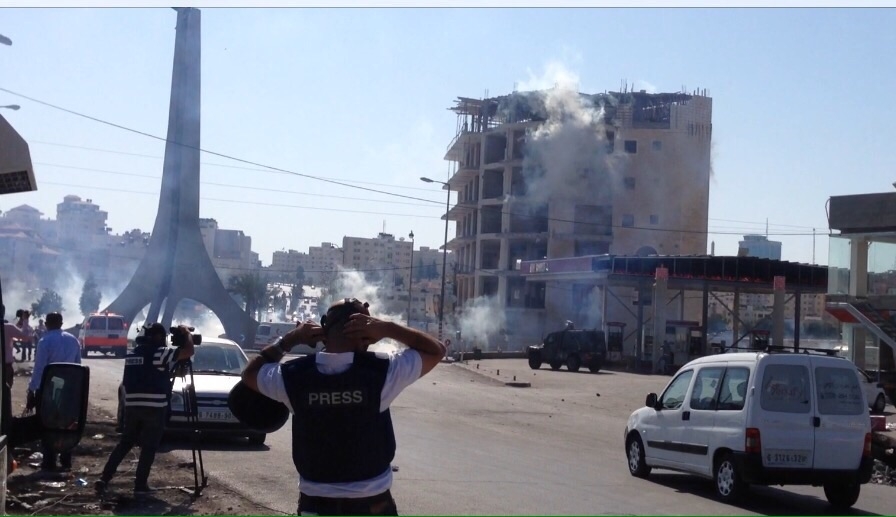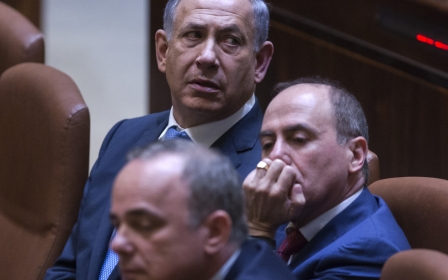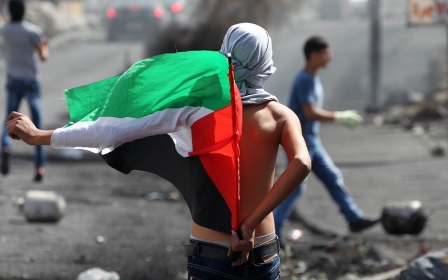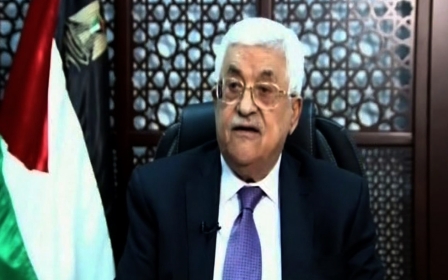Clashes start in West Bank, Gaza after Palestinian youths torch site

Hours after Palestinian youths torched a site in the West Bank city of Nablus early in the morning, tensions were running high following Friday prayers in Jerusalem, the West Bank and Gaza.
As demonstrations and clashes between protesters and Israeli security forces were reported in Bethlehem, Hebron and Gaza, a Palestinian man - dressed as a press photographer - was reportedly shot dead after allegedly stabbing and wounding an Israeli police officer in Kiryat Arba, an Israeli settlement in Hebron.
Hamas had called for protests across the West Bank after Friday prayers. Jerusalem police barred men under 40 years of age from attending the main weekly prayers at the flashpoint Al-Aqsa mosque, seeking to keep young protesters away.
Early Friday morning, hundreds of Palestinian youths threw Molotov cocktails and set on fire a site in Nablus.
Although it was widely reported that the Palestinians were attacking Joseph's Tomb, a site that is holy to Jews, Palestinian journalists distributed a press release saying that the activists had, in fact, targeted a Jewish religious school in the city whose head had previously encouraged Jewish Israelis to kill babies.
One of the students of the school, according to the press release, leads an organisation that was involved in the burning of the Dawabsheh family home near Nablus in late July.
Ali Saad Dawabsha, the family's 18-month-old toddler, died in the attack. A week after the attack, Saad Dawabsha, Ali's father died of his wounds, followed in September by his wife, Reham Dawabsha.
"Muslims and Arabs are the ones who conserve the prophets' shrines in Palestine," wrote Saleh Na'ami, who signed his name to the statement.
The exact target of the attack remains disputed.
Haaretz reported on Friday that young people had broken into Joseph's Tomb and started throwing flammable objects into the complex when Palestinian security forces arrived and started firing into the air to break up the crowd.
Soon after the attack, the Israeli military said that it "considers this event severely, will work to locate and arrest the perpetrators, and strongly condemns any attacks on holy sites," Haaretz reported.
The UN Security Council is scheduled to hold an emergency meeting on Friday morning, requested by a Jordanian council member, to discuss the upsurge of violence.
Palestinian envoy Riyad Mansour told reporters late Thursday that the situation was "very explosive" and called on the Security Council to "shoulder its responsibility" with action to quell the violence.
Rhetorical battle
In the past 48 hours, Palestinian President Mahmoud Abbas and Israeli Prime Minister Benjamin Netanyahu have tussled in public statements over where blame lies for the recent violence.
While Abbas has said Israeli aggression is fuelling tensions and could lead to a religious conflict that would "burn everything," Netanyahu has focused on Abbas, saying the leader is inciting violence and failing to accept his invitations to return to the negotiation tables.
"We are asking for our rights, justice and peace, we do not commit aggression on anyone and we do not accept aggression against our people, our nation and our holy places,” Abbas said on Wednesday.
"This wave of attacks is not the result of the lack of political horizon,” Netanyahu said on Thursday. “This is not the result of a massive wave of settlements as there has not been a massive wave of settlements.”
In an NPR News interview due to be aired on Friday, US Secretary of State John Kerry put the onus of the current tensions on Abbas.
"President Abbas has been committed to non-violence. He needs to be condemning this, loudly and clearly," Kerry said. "And he needs to not engage in some of the incitement that his voice has sometimes been heard to encourage. So that has to stop."
Abbas however reportedly told Kerry in a phone conversation on Thursday night that he vowed to work to de-escalate the situation in the West Bank and Israel and pushed Kerry to ask the Israeli government to "stop goading aggression against Palestinians by settlers and visits to the Temple Mount," Haartez reported.
Imposed measures
On Wednesday, Israel began to impose a series of security measures, including sealing off East Jerusalem neighbourhoods and revoking the citizenship of Palestinian citizens of Israel who are involved in attacks, as well as their families, in response to a major spike in violence that started earlier this month.
As the Israeli cabinet decided on the measures, Netanyahu told reporters, "Not only will we take away rights, but they will pay the full price … whoever raises a hand to hurt us - his hand will be cut off."
Critics of the new measures, including East Jerusalem residents whom MEE has spoken with this week, say not only will they do little to curb the escalation in violence, but also serve to heighten Israel's occupation and collective punishment of Palestinians that has fuelled the latest tensions.
"Insanity is nothing but repeating the same thing but expecting different results," Mustafa Barghouti, president of the Palestinian National Initiative, told al-Jazeera earlier this week. "When they decide to separate East and West Jerusalem it only proves that they have failed. The whole idea of walls and checkpoints is only deepening the military occupation."
New MEE newsletter: Jerusalem Dispatch
Sign up to get the latest insights and analysis on Israel-Palestine, alongside Turkey Unpacked and other MEE newsletters
Middle East Eye delivers independent and unrivalled coverage and analysis of the Middle East, North Africa and beyond. To learn more about republishing this content and the associated fees, please fill out this form. More about MEE can be found here.




